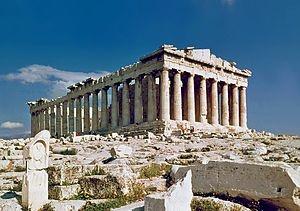Gigi J Wolf’s answer to What are some things you will never do on Quora?
Comment, Michael Masiello:
You’re a better man than I, Charlie Brown. I break so many of these lupine commandments that I feel every inch a sinner.
Forgive me, La Gigi, for I have sinned.
- I’ll never post another meme.
I did it once without even thinking it, and them removed it before being nabbed by the meme police. But I unrepentantly post memes that are actually not gratuitous, but are discussed in the question (such as a meme of Obama as an action hero, proving that at least some American attitudes had changed).
- I’d post a meme and cartoon every single dang answer if I could, but I don’t want my answers collapsed.
I’d post a cartoon of my own making to every single answer if I could be bothered, but drawing and scanning is a little too much of a hassle. Let alone actually getting the shape of people right.
- I’ll never post a selfie of me without makeup, or when I just wake up. Quit asking.
Guilty. I have in fact posted one or two selfies without makeup. Though almost all photos are from an external party.
- Or while I’m on the potty. How would you like that?
Not one of my kinks. I’m ok, thanks.
- I’ll never use profanity, or even say things like ‘potty’.
… Bugger.
- I’m never going to go into graphic detail about sex.
I will never go into graphic detail about sex under my own name, anyway…
- I’m never going to fink and write about the rotten things someone did to me.
I don’t name names, unless they’ve blocked me, but I do try and behave here within BNBR. I do hold grudges, but I haven’t been strongly enough motivated to dish on them here.
- I don’t think I’ve ever been very critical of Quora here. Unless their definition varies greatly from mine. Or unless Alec Baldwin is a mod.
I’ve just dedicated a whole blog to being critical of Quora, so… again, bugger.
- I’m never going to give graphic details of the horrible events of my childhood, or whether my parents spanked me, or whether I hated any of my relatives.
I’ve mentioned the fly swatter in a survey question, but I don’t have a lot of horrors to relate anyway.
- I’m never going to get into super emotional detail about how I ‘feel’.
I often use Quora as therapy. Bugger.
- I’m never going to show anyone in a bad light, unless they’re a public persona and I can make innocent fun of them.
I’m not as innocent as I like to think I am, though again I don’t do it much.
- I’m not going to ever argue over whether God really exists or not.
God, no. Theist/Antitheist arguments on Quora are truly a reason to despair of both the existence of God, and of the essential goodness of humanity.
- I won’t answer questions about specific Quorans (Unless it’s me. Thanks, Guy!), and whether I think they’re dweebs.
… Guilty again, and several of those answers have had their parent question deleted.
- I don’t link to other answers unless the question asks me to.
Linking is one of my tics on Quora, and in fact I often link to an answer and suggest people upvote it instead of mine.
- I don’t thank anyone for upvotes. What is this, an AWARD ceremony?
Not succumbed, and so far not really been given enough upvotes to even be tempted to succumb.
Anyone else want to go into which Lupine Commandments they’ve violated?
